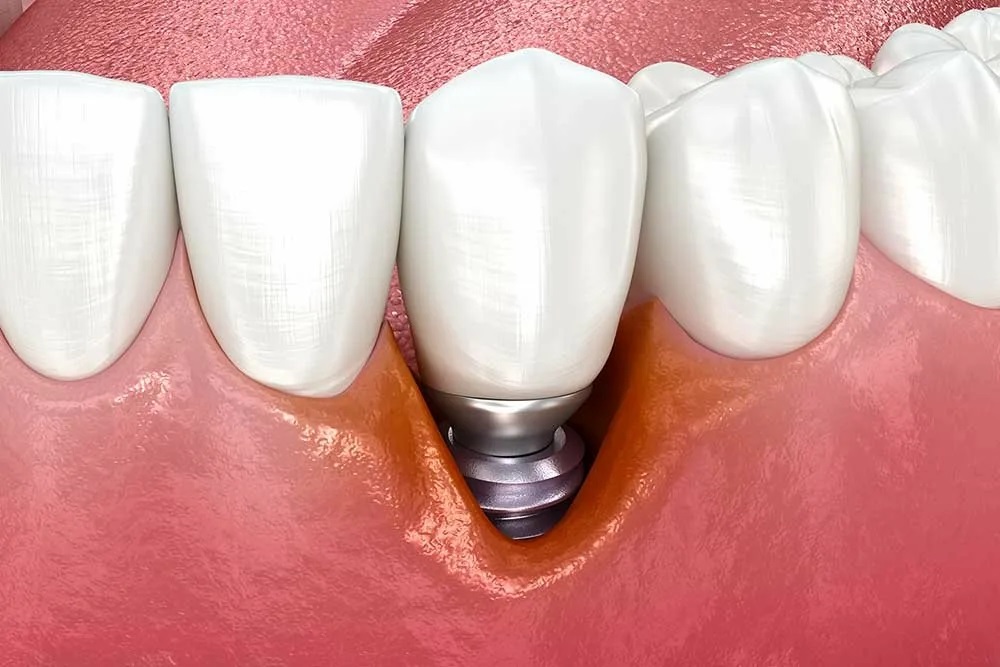
Why Do Dental Implants Get Infected? Causes & Prevention Tips
Read Count : 202
Category : Blogs
Sub Category : LifeStyle
Dental implants have revolutionized the way we restore missing teeth, offering a durable and natural-looking solution. However, like any medical procedure, they come with their own set of risks—one of the most common being infection. If you’ve ever wondered why dental implants get infected or how to prevent it, you’re in the right place. Let’s dive into the causes, warning signs, and practical tips to keep your implants healthy and infection-free. What Causes Dental Implant Infections? Dental implant infections, also known as peri-implantitis, occur when bacteria invade the tissues surrounding the implant. This can lead to inflammation, bone loss, and even implant failure if left untreated. Here are the most common causes: Poor Oral Hygiene Just like natural teeth, dental implants require consistent care. Plaque and bacteria can build up around the implant, leading to infection. Skipping brushing, flossing, or regular dental checkups increases the risk. Pre-Existing Gum Disease If you have a history of gum disease (periodontitis), you’re more susceptible to infections after getting an implant. The bacteria that cause gum disease can easily spread to the implant site. Smoking Smoking weakens your immune system and reduces blood flow to the gums, making it harder for your body to fight off infections. It’s one of the leading risk factors for implant failure. Improper Implant Placement If the implant isn’t placed correctly or the surrounding bone isn’t strong enough, it can create pockets where bacteria thrive. This is why choosing an experienced dentist is crucial. Chronic Health Conditions Conditions like diabetes or autoimmune disorders can compromise your body’s ability to heal and fight infections, increasing the risk of complications. Warning Signs of an Infected Dental Implant Early detection is key to preventing serious complications. Keep an eye out for these symptoms: Red, swollen, or tender gums around the implant Persistent bad breath or a foul taste in your mouth Pus or discharge around the implant site Loosening of the implant or changes in bite alignment Pain or discomfort when chewing If you notice any of these signs, contact your dentist immediately. How to Prevent Dental Implant Infections The good news is that most dental implant infections are preventable with proper care and attention. Here are some practical tips to keep your implants in top shape: Maintain Excellent Oral Hygiene Brush twice a day with a soft-bristled toothbrush and use an antibacterial mouthwash. Floss daily to remove plaque and food particles from hard-to-reach areas. Schedule Regular Dental Checkups Visit your dentist every six months for professional cleanings and exams. They can spot early signs of infection and address them before they escalate. Quit Smoking If you’re a smoker, consider quitting. Not only will it improve your oral health, but it’ll also boost your overall well-being. Follow Post-Surgery Instructions After getting an implant, follow your dentist’s aftercare instructions carefully. This may include avoiding certain foods, taking prescribed antibiotics, and keeping the area clean. Choose a Skilled Dental Professional Ensure your implant is placed by a qualified and experienced dentist or oral surgeon. Proper placement reduces the risk of complications. Manage Underlying Health Conditions If you have diabetes or other chronic conditions, work with your healthcare provider to keep them under control. This will improve your body’s ability to heal and fight infections. What to Do If You Suspect an Infection If you think your dental implant might be infected, don’t panic—but don’t delay either. Contact your dentist as soon as possible. They may recommend: Antibiotics to eliminate the infection Deep cleaning to remove bacteria and plaque Surgical intervention in severe cases Early treatment can save your implant and prevent further damage. Final Thoughts Dental implants are a fantastic solution for restoring your smile, but they require proper care to stay healthy. By understanding the causes of infections and taking proactive steps to prevent them, you can enjoy the benefits of your implant for years to come. Remember, your oral health is an investment—so treat it with the care it deserves! If you found this article helpful, share it with someone who might benefit from these tips. And don’t forget to leave a comment below with your thoughts or questions—we’d love to hear from you!
Comments
- No Comments

